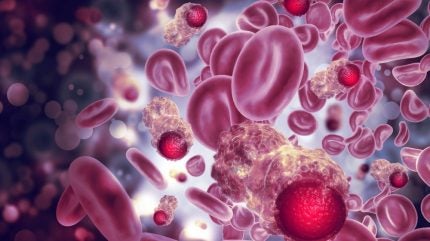Terns scores FDA orphan designation for CML therapy
12 Mar 2024
Phase 1Orphan DrugGene TherapyPhase 2

Preview
Source: Pharmaceutical Technology
TERN-701 is an oral allosteric BCR-ABL tyrosine kinase inhibitor (TKI). Image Credit: crystal light / Shutterstock.
The US Food and Drug Administration (FDA) has granted an orphan drug designation to Terns Pharmaceuticals’s TERN-701 for the treatment of chronic myeloid leukaemia (CML).
The orphan drug status gives sponsors tax credits from clinical trials, exemption from user fees, and a potential seven years of market exclusivity for the therapy after approval.
TERN-701 is an oral allosteric BCR-ABL tyrosine kinase inhibitor (TKI) and is one of the two therapies that Terns plans to focus its resources on this year. The treatment is being evaluated in a Phase I CARDINAL trial (NCT06163430) in participants with chronic phase CML who experienced treatment failure on at least one prior second-generation TKI. Interim data from the trial is expected in H2 2024.
CML therapies are expected to generate $3.5bn in sales across eight major pharmaceutical markets (the US, France, Germany, Italy, Spain, UK, Japan, and Canada), as per a GlobalData report. The current market leaders in the field include Bristol Myers Squibb’s Sprycel (dasatinib) and Novartis’ Tasigna (nilotinib). Sprycel and Tasigna generated $1.4bn and $1.8bn in global sales in 2023, according to the companies’ financials.
See Also:

Preview
Source: Pharmaceutical Technology
Selecta Biosciences files patent for enhanced gene therapy using viral vectors and immunosuppressants

Preview
Source: Pharmaceutical Technology
GlobalData is the parent company of Pharmaceutical Technology.
Earlier this year, Terns paused the development of its most advanced candidate, the oral thyroid hormone receptor-beta (THR-β) agonist, TERN-501, as a treatment for nonalcoholic steatohepatitis (NASH), despite reporting positive data from the Phase IIa DUET trial (NCT05415722). The company cited the current regulatory and developmental MASH landscape for limiting funding for the NASH therapy.
The company also has additional early-stage candidates in the pipeline for obesity. TERN-800, an oral small molecule glucose-dependent insulinotropic polypeptide receptor (GIPR) modulator, is currently in the discovery stage as an obesity treatment.
For more details,please visit the original website
The content of the article does not represent any opinions of Synapse and its affiliated companies. If there is any copyright infringement or error, please contact us, and we will deal with it within 24 hours.
Indications
Hot reports
Get started for free today!
Accelerate Strategic R&D decision making with Synapse, PatSnap’s AI-powered Connected Innovation Intelligence Platform Built for Life Sciences Professionals.
Start your data trial now!
Synapse data is also accessible to external entities via APIs or data packages. Leverages most recent intelligence information, enabling fullest potential.





